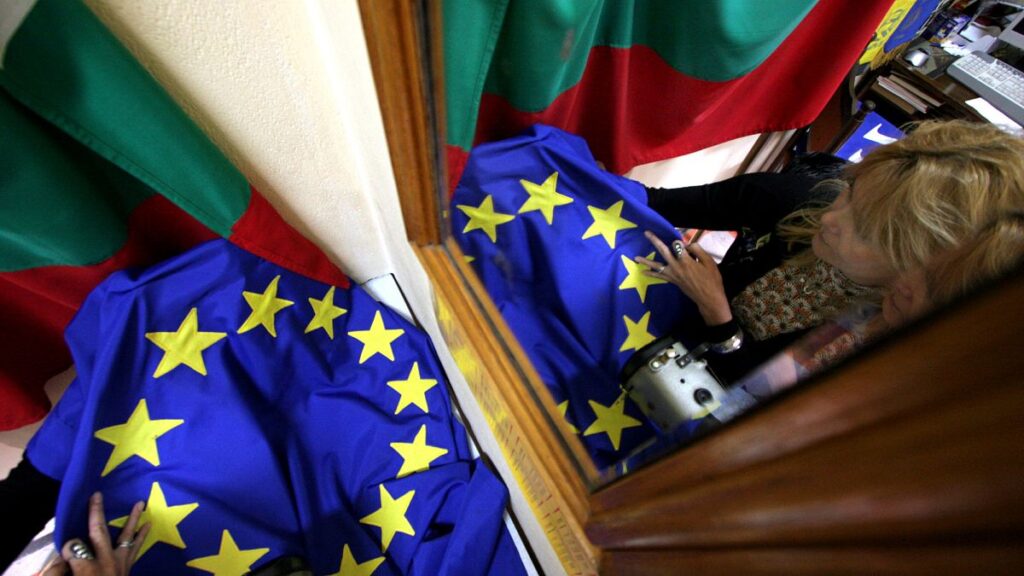As Bulgaria approaches its goal of joining the Eurozone at the beginning of next year, it still faces the challenge of winning the hearts and minds of its public, according to Eva Maydell, the Bulgarian EPP rapporteur for the report recommending the adoption of the single currency by the Central European country.
By an overwhelming majority, the Economic and Monetary Committee (ECON) of the European Parliament voted on Tuesday, in favour of the report recommending Bulgaria’s accession to the single currency. The vote saw 36 MEPs in favour, three against, and four abstentions.
Bulgaria’s membership in the Eurozone was endorsed by the EU Economic and Finance Ministers Council (ECOFIN) on 20th June. It will be discussed by the European Council of Heads of State and Government on Thursday and Friday, and formally approved by the European Parliament at its plenary session in Strasbourg scheduled for the week of 7th July.
Following the ECON committee vote, Eva Maydell, a member of Bulgaria’s ruling GERB party, called on the pro-EU forces in Bulgaria to demonstrate political unity and responsibility after more than five years of internal political instability.
The Balkan country has held seven legislative elections in five years and experienced a series of short-term governments.
“I very much hope that the pro-European forces will be able to unite and ensure stability, in order to facilitate the smooth adoption of the euro in Bulgaria,” Maydell told Euronews.
Public opinion in Bulgaria remains divided on the adoption of the single currency, with a significant portion of the population deeply concerned about a potential further decline in purchasing power.
Maydell acknowledged these fears, citing a preference among some citizens to retain the Bulgarian Lev, the national currency.
Is the Euro popular in Bulgaria?
The former centre-right prime minister and GERB’s long-standing leader, Boyko Borisov, was forced to resign in 2013 due in part to the unpopularity of the austerity policies his government introduced in preparation for the country’s path towards the Eurozone.
Today, Bulgaria’s public finances are in order, with public debt and deficits well below the Maastricht criteria. However, rising prices continue to worry the Bulgarian public. Inflation has reached 3.5%.
According to Eurostat, 30% of the population lives below the poverty line, the highest poverty rate in the EU.
“Many Bulgarians believe that when the country joins the Eurozone, it will lose its economic independence and living standards will worsen,” said Antoaneta Hristova, a member of the Bulgarian Academy of Sciences. “This sentiment is especially strong due to the unpopularity of the current political elite, including the pro-EU factions.”
In the October 2024 parliamentary elections, voter abstention reached 62%, with a rise in support for ultra-conservative and anti-European political forces.
“There are real fears among citizens, and of course, these are the concerns that we, as politicians, need to address. We must take care of these groups,” said Maydell, clarifying that at the EU level, there is a concrete political will to alleviate these concerns and ensure the “smooth adoption of the Euro”.
An anti-Euro head of state
Bulgarian President Rumen Radev proposed a referendum in May to delay the adoption of the Euro beyond January 2026.
“Radev proposed the referendum for political opportunism. He is attempting to rally mounting anti-EU sentiment to further his own political ambitions,” according to Maydell.
Radev’s term in office is due to expire in autumn 2026.
“There is another issue: the manipulation of public opinion by certain political actors, including President Radev, who are exploiting public fears by suggesting anti-constitutional measures,” Maydell said, referring to the referendum.
Read the full article here


